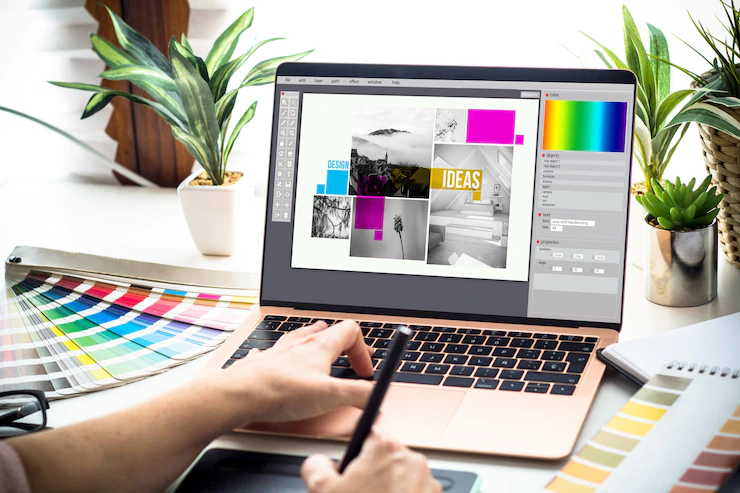Why It Is Important To Take Font Training For Graphic Design Students

Table Of Contents
Typography’s relevance in graphic design cannot be understated. Comprehension, authority, and brand identification are all aided by typography.
The deliberate placement of type in an effort to allow written text legible and visually striking is known as typography. One of the most crucial talents for any graphic and online designer to learn is typography.
It’s at the heart of all types of design, both printing and digitally. In graphic design, typography serves two roles.
The first is to improve readability, and the second is to aid in communicating a design piece’s meaning, tone, and feeling. Another use of typography is for aesthetic purposes.
We are lured to aesthetically appealing designs that are simple and easy to read. We run in the opposite direction if a design is cluttered, complicated, and compels us to strain our eyes.
As a result, it’s in our best interests, as well as our clients, to understand how to employ typography successfully in graphic design.
Numerous universities are offering graphic design courses in London so that students can master the art of font training and help understand the significance of this particular aspect of graphic design.
A thorough grasp of basic design concepts is required to hit all the markers of effective and aesthetically attractive typography in graphic design. Students will gain an eye for beautiful typography and get skilled at creating strategic design decisions as they practice.
The concepts “typeface” and “font” are sometimes confused. In reality, the majority of individuals correspond to a typeface when they mention font. It’s crucial to know the distinction between these phrases as a graphic designer.
Font training is important as it allows a graphic designer to:

»Create contrast:
Contrast is crucial in graphic design, specifically when it comes to typography. Legibility is improved by a high color contrast between the type and the backdrop.
Black font on a white backdrop is a simple yet powerful example of typographic contrast. Yet, there are many other methods to employ color to create contrast.
»Deliver a message:
Visual communication is at the heart of graphic design. We may use typography to emphasize a design’s message in a straightforward and comprehensible way.
The typography in a design that is mostly image-based must be powerful enough to stand out. We need to apply font design in a text-heavy structure to identify distinct parts and draw attention to crucial messages.
In an attempt to get the major information over quickly and simply, there must be a purposeful and harmonic balance between diverse conflicting aspects.
»Build brand recognition:
In graphic design, typography plays an important part in establishing and growing brand identification. When it relates to logo design, this is particularly the case.
When you think of well-known businesses, you may quickly see their distinctive logotype. The same principle applies to other types of graphic design, such as Instagram’s app user interface, which employs a basic sans-serif typeface.
Using typography to establish brand awareness aids in the creation of a unique bond and sense of connection between the company and the consumer.
Font training is an essential component of the graphic design industry and if you are interested in pursuing a career in this domain, then you must enroll in a specialized training program for graphic designers. So, sign up for this course now!
Read Also:

























